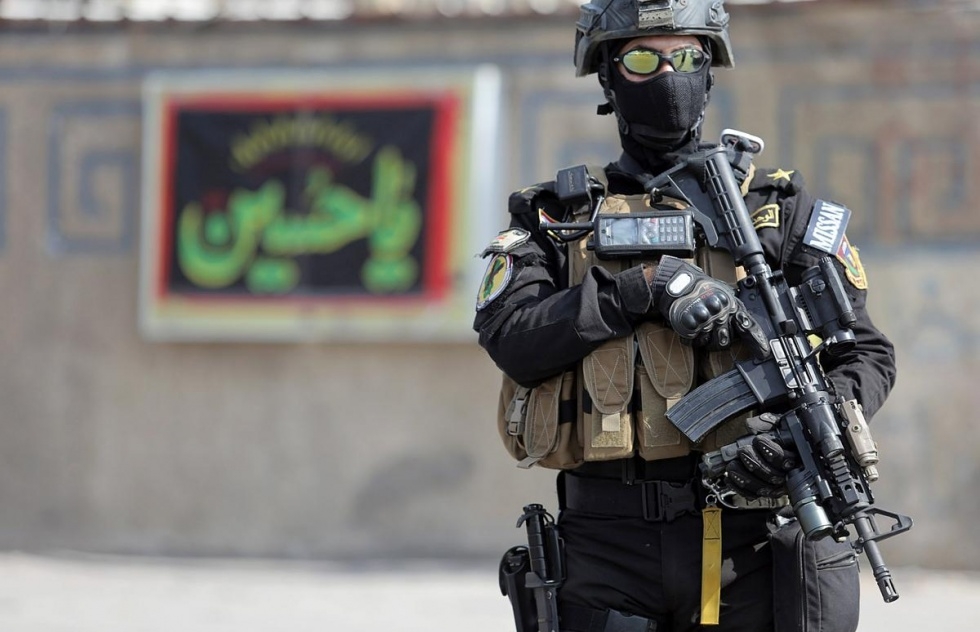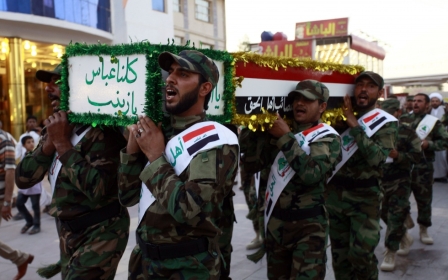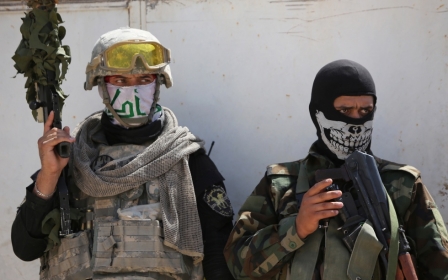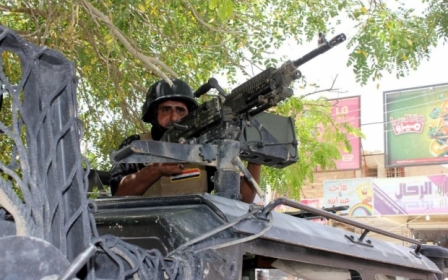Iraq Sunni exiles: power-sharing is the way to defeat IS

As US-led warplanes pound militants in Iraq, prominent Sunni exiles say that empowering their marginalised community will be more important than bombs and missiles in defeating the Islamic State (IS) group.
Deadly sectarian tensions have riven Iraq since the fall of Saddam Hussein more than a decade ago, with Sunni anger at the Shiite-led authorities seen as a key factor behind the rise of IS.
"Dropping bombs from planes will not eliminate the terrorism of the so-called Daesh," said Iraqi Sunni cleric in exile Sheikh Abdel Malik al-Saadi, using an Arabic acronym for IS.
"What is needed to eliminate this terrorism is to eradicate the motives behind injustice, marginalisation and genocide, and to give people back their rights and freedoms," he told AFP in the Jordanian capital Amman, home to thousands of Iraqi refugees.
Sunni clerics and community leaders living in exile in Jordan say power-sharing in Iraq between Kurds, Sunnis and Shiites will be needed to bring stability to the violence-wracked nation.
Without a political consensus between all Iraqis, "we will not be able to beat Daesh, and even if we succeed another group will emerge -- another Daesh," warned Yahya al-Kubaisi, a consultant for the Amman-based Iraqi Centre for Strategic Studies.
Saadi, the cleric, said the US-led coalition carrying out air strikes on IS must "revise its positions because the situation will get worse across the world".
He urged the coalition leaders to meet Sunni figures to hear their demands, including the creation of an Iraqi government of technocrats.
"When are our rights are met, we will know how to deal with Daesh. This is our problem," he said.
Since Saddam was ousted in the US-led invasion in 2003 and later executed, the Shiites have emerged as the driving political force.
Government 'injustice'
Former Prime Minister Nuri al-Maliki, who in August bowed to huge domestic and international pressure to step down, made few concessions to Sunni Arabs while in office, instead unsuccessfully seeking to address the problem with military force.
Neighbouring Iran, which is also majority Shiite, was a key backer of Maliki until the escalating turmoil prompted Tehran to distance itself from him.
Some are hoping that current Prime Minister Haidar al-Abadi would pursue a different policy than Maliki.
Jordan is home to 150,000-200,000 Iraqis who fled the violence that has swept across their country following the US-led invasion that ousted Saddam.
The exodus grew after a Sunni-Shiite sectarian war in 2006-2008 killed tens of thousands of people -- one of the darkest pages of Iraq's modern history.
Now Sunni leaders say they fear the coalition air strikes pose a threat to their existence.
Iraq's Sunni provinces are "stuck between a rock and a hard place," said Sheikh Mohammed Bashar al-Faidhi, spokesman for the Association of Muslim Scholars in Iraq.
"On the one side there is Daesh, with its takfiri (extremist) doctrine which no one accepts, and on the other side there is the government and its injustice. And then there are the coalition air raids," he said.
"Are we going to witness a war of extermination against all the Sunnis under the cover of a war against the (IS) group?" he asked.
The air strikes come almost three years after US troops completed their withdrawal from Iraq, ending a nearly nine-year occupation.
Sheikh Raad Abdul Sattar Suleiman, a senior member of the key Dulaim tribe of the western province of Anbar, urged the international community to refrain from taking part "in another failed battle" in Iraq.
Underscoring the importance of Anbar's Sunni tribes, on a recent visit to Jordan Abadi met six of their representatives who presented a list of demands including no raids against civilians and compensation for civilian victims.
New MEE newsletter: Jerusalem Dispatch
Sign up to get the latest insights and analysis on Israel-Palestine, alongside Turkey Unpacked and other MEE newsletters
Middle East Eye delivers independent and unrivalled coverage and analysis of the Middle East, North Africa and beyond. To learn more about republishing this content and the associated fees, please fill out this form. More about MEE can be found here.




